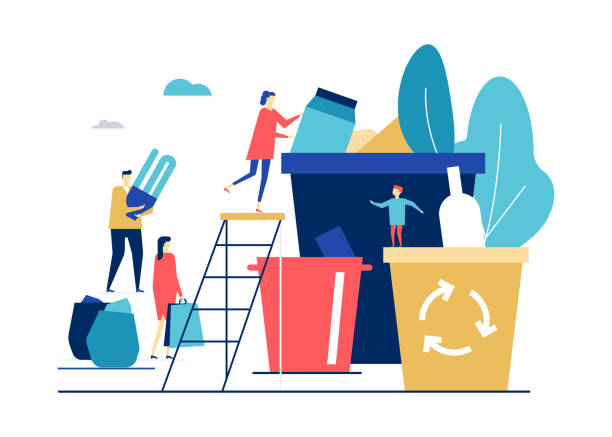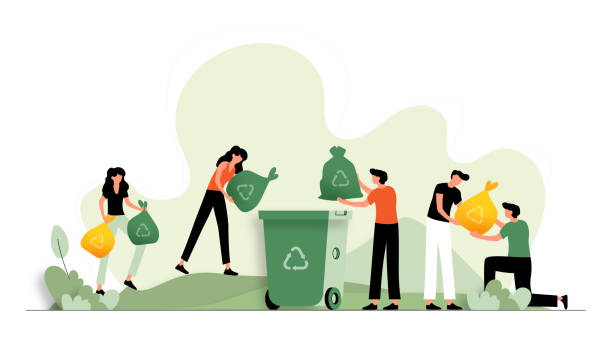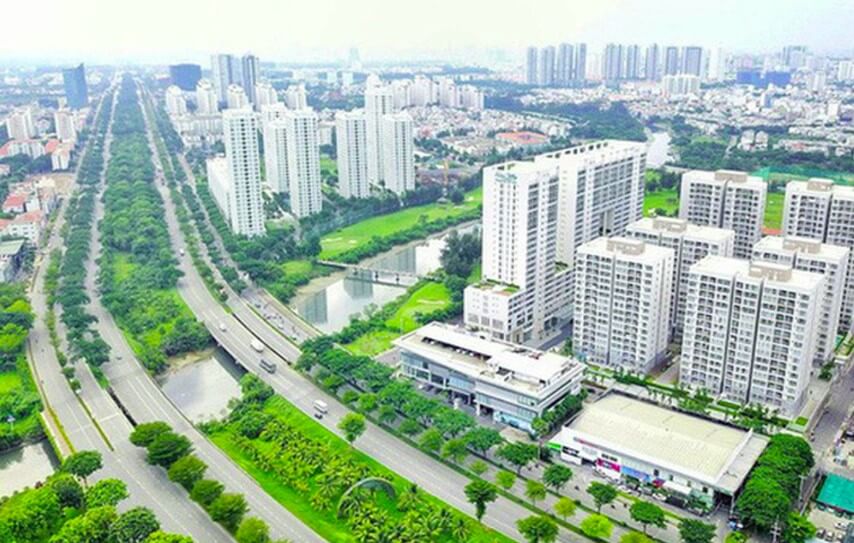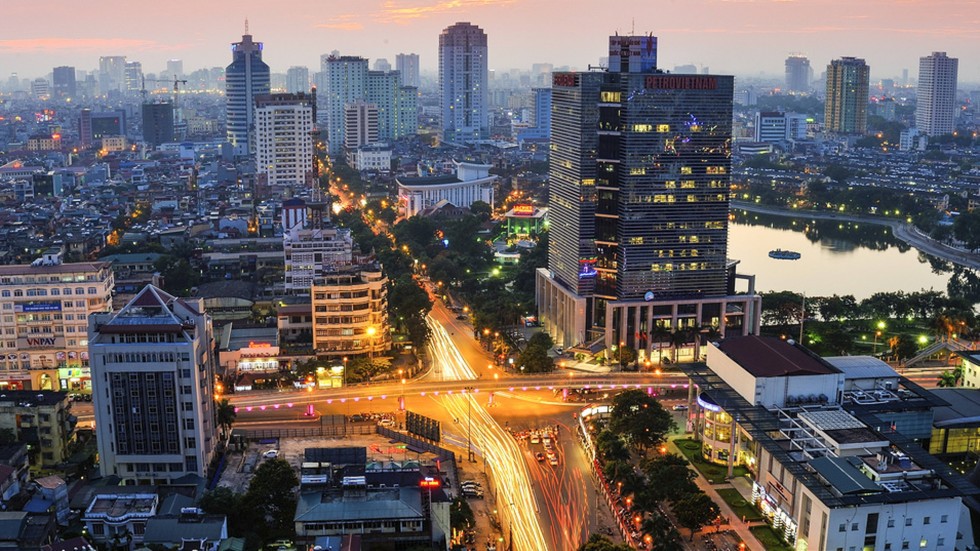Regulations on domestic solid waste management in Vietnam

Vietnam law has regulations on domestic solid waste management. Let’s find out this issue with Lawyer X through the following situation: “Dear Lawyer! I want to ask what are regulations on classification, storage and transfer of domestic solid waste? What are regulations on collection and transport of domestic solid waste? Thanks for answering my questions!”
Legal grounds
- Vietnam law on environmental protection
Classification, storage and transfer of domestic solid waste
– Domestic waste generated by households and individuals is classified as:
+ Reusable and recyclable solid waste;
+ Food waste;
+ Other domestic solid waste.
– Provincial People’s Committees shall to classify domestic solid waste specified in Point c Clause 1 of this Article within their provinces under the guidance of the Ministry of Natural Resources and Environment; introduce policies to encourage the classification of hazardous waste present in domestic solid waste generated by households and individuals.
– Households and individuals in urban areas must contain the domestic solid waste already classified as prescribed in Clause 1 of this Article in packages for transfer as follows:
+ Reusable and recyclable solid waste shall be transferred to entities for reuse and recycling or facilities licensed for collection and transport of domestic solid waste;
+ Food waste and other domestic solid waste must be contained in packages as prescribed and transferred to facilities licensed for collection and transport of domestic solid waste; food waste may be used as organic fertilizers and animal feeds.
– Households and individuals in rural areas that generate domestic solid waste and classify them as prescribed in Clause 1 of this Article shall manage them as follows:
+ Households and individuals are encouraged to make the most of waste food to be used as organic fertilizers and animal feeds;
+ Reusable and recyclable solid waste shall be transferred to entities for reuse and recycling or facilities licensed for collection and transport of domestic solid waste;
+ If not used as prescribed in Point a of this Clause, food waste shall be transferred to or facilities licensed for collection and transport of domestic solid waste;
+ Other domestic solid waste must be contained in packages as prescribed and transferred to facilities licensed for collection and transport of domestic solid waste.
– Households and individuals in rural areas that produce domestic solid waste shall classify, contain and transfer domestic solid waste as prescribed in Clause 3 of this Article.
– The classification, collection, transport and treatment of bulky waste shall comply with regulations imposed by provincial People’s Committees.
– The Vietnamese Fatherland Front Committee and socio-political organizations at all levels shall encourage residential communities, households and individuals to classify domestic solid waste at source. Internal residential communities and socio-political organizations shall supervise the classification of domestic solid waste by households and individuals.
Domestic solid waste aggregation points and transfer stations
– Every domestic solid waste aggregation point and transfer station must have different areas to store types of domestic solid waste to avoid mix-ups.
– People’s Committees at all levels shall reserve land area for aggregation points and transfer stations in accordance with environmental protection according to the regulations imposed by the Ministry of Natural Resources and Environment.
Collection and transport of domestic solid waste
– People’s Committees at all levels shall select facilities for collection and transport of domestic solid waste through bidding in accordance with regulations of law on bidding. In case of failure to make a selection through bidding, the method of order placement or task assignment shall be adopted as prescribed by law.
– Facilities collecting and transporting domestic solid waste are entitled to refuse to collect and transport households and individuals’ domestic solid waste that is not classified or contained in inappropriate packages and notify competent authorities as prescribed by law, except for the case where households and individuals use packages intended for other domestic solid waste as prescribed in Point c Clause 1 Article 75 of this Law.
– Facilities collecting and transporting domestic solid waste shall cooperate with communal People’s Committees, residential communities and representatives of residential areas in determining time, places, frequency and routes for collecting domestic solid waste, and make them publicly available.
– Facilities collecting and transporting domestic solid waste must use equipment and vehicles appropriately designed for each type of Domestic solid waste and satisfy environmental protection requirements in accordance with the regulations imposed by the Ministry of Natural Resources and Environment; domestic solid waste must be transported in compliance with regulations on routes and time of operation adopted by prescribed by the provincial People’s Committee.
– Households and individuals shall transport classified domestic solid waste to aggregation points as prescribed or transfer them to facilities collecting and transporting domestic solid waste.
– Investment project owners, owners, management boards of new urban areas, high-rise apartment buildings and office buildings must provide equipment and works for storage of domestic solid waste suitable for waste types specified in Clause 1 Article 75 of this Law; organize the collection of waste from households and individuals and transfer them to facilities collecting and transporting domestic solid waste.
– Communal People’s Committees shall:
+ inspect the compliance with regulations of law on environmental protection regarding collection and transport of domestic solid waste; take actions against violations of regulations on domestic solid waste management within their power; consider and handle feedback and comments of organizations, residential communities, households and individuals involved in collection and transport of domestic solid waste;
+ preside over and cooperate with facilities collecting and transporting domestic solid waste, residential communities and socio-political organizations in determining time, places, frequency and routes for collecting domestic solid waste;
+ instruct households and individuals to transfer domestic solid waste to facilities in charge of collection and transport or aggregation points as prescribed; instruct residential communities to supervise and make publicly available cases of failure to comply with regulations on domestic solid waste classification and collection.
Regulations on Domestic solid waste treatment
– The State shall encourage and provide incentives for entities involved in investment in and provision of domestic solid waste treatment services; encourage co-processing of domestic solid waste.
– People’s Committees at all levels shall select domestic solid waste treatment facilities through bidding in accordance with regulations of law on bidding. In case of failure to make a selection through bidding, the method of order placement or task assignment shall be adopted as prescribed by law.
– Domestic solid waste treatment providers must fulfill environmental protection requirements as prescribed by this Law. It is not recommended to make investment in domestic solid waste treatment providers that cover only one commune.
– Domestic solid waste must be treated using appropriate technologies and satisfying technical regulations on environment. The Government shall provide for a roadmap for restricting treatment of domestic solid waste using direct landfill disposal technology.

– The Minister of Natural Resources and Environment shall promulgate criteria for domestic solid waste treatment technologies; provide guidelines for domestic solid waste treatment models in urban and rural areas.
– Provincial People’s Committees shall formulate planning and reserve land area for domestic solid waste treatment facilities, promptly transfer land to build and operate domestic solid waste treatment facilities within their provinces; provide funding for construction and operation of systems for collection, storage, transfer, transport and treatment of domestic solid waste treatment; works, measures and public equipment serving domestic solid waste management within their provinces.
Costs of collection, transport and treatment of domestic solid waste
– Charges for domestic solid waste collection, transport and treatment services payable by households and individuals shall be calculated as follows:
+ The charges shall be calculated in accordance with regulations of law on prices;
+ The charges vary by quantity or volume of the classified waste;
+ If solid waste are reusable and recyclable and hazardous waste is classified, households and individuals are not required to pay charges for collection, transport and treatment services.
– Any household or individual that fails to classify or correctly classify domestic solid waste as prescribed in Points a and b Clause 1 Article 75 of this Law must pay charges for collection, transport and treatment services as other types of domestic solid waste.
– Organizations, businesses, dedicated areas for production, business operation and service provision and industrial clusters that generate waste from their daily and office activities in small quantities prescribed by the Government are entitled to manage domestic solid waste as prescribed in Article 75 of this Law or Clause 4 of this Article.
– Organizations, businesses, dedicated areas for production, business operation and service provision and industrial clusters that generate waste from their daily and office activities in large quantities prescribed by the Government must transfer it to a facility licensed for waste recycling, reuse and treatment or to a facility collecting and treating waste with appropriate vehicles and equipment to be transported to the facility licensed for waste recycling, reuse and treatment.
– The Minister of Natural Resources and Environment shall provide guidance on method for determining charges for domestic solid waste treatment services; provide for economic and technical norms for collection, transport and treatment of domestic solid waste; provide technical guidance on classification of domestic solid waste; provide guidelines for implementation of Clause 1 of this Article.
– Provincial People’s Committees shall elaborate the management of domestic solid waste of households and individuals within their provinces; impose specific charges for domestic solid waste collection, transport and treatment services; promulgate specific provisions on method of payment of charges and charges for domestic solid waste collection, transport and treatment services payable by households and individuals according to the quantity or volume of the classified waste.
– The regulation set out in Clause 1 of this Article and Clause 1 Article 75 of this Law must be implemented by December 31, 202-
Environmental remediation and improvement in domestic solid waste landfills
– Closed and unsanitary domestic solid waste landfills must be remediated and improved in accordance with environmental protection requirements.
– Every owner of project on investment in or facility managing a domestic solid waste landfill has the responsibility to:
+ After closure of a landfill, it is required to improve landscape and take measures to prevent environmental pollution;
+ organize monitoring of environmental changes in the landfill from the date on which the landfill closure is completed and notify the provincial specialized environmental protection as prescribed;
+ complete the environmental remediation and improvement, prepare a dossier and transfer the landfill to a competent authority.
– The Government shall provide incentives and encourage entities to invest in environmental remediation and improvement in Domestic solid waste landfills.
– The Minister of Natural Resources and Environment shall provide guidelines for closure of Domestic solid waste landfills.
– Provincial People’s Committees shall provide resources and funding for environmental improvement and remediation in landfills managed by the State and unauthorized landfills within their provinces.
Please see more:
- Instructions for exclusive registration of company logos in Vietnam
- Service of changing the legal representative of Vietnamese enterprises
Services of Lawyer X
Prestigious professional services: Firstly, the team of consultants and consultants for many years in the field of civil status, and customer support.
On-time: Certainly, with the motto “Get your lawyer right at your fingertips”, we ensure the service always performs on time. The rights and interests of customers always come first.
Cost: Besides, Lawyer X’s service costs are highly competitive; depending on the nature of the particular case. So, we want our guests to have the best possible service experience. Therefore, costs which guaranteed to be the most suitable and economical for customers.
Confidentiality of client information: Finally, all personal information of clients Lawyer X will be 100% confidential.
If you need any further information, please contact LSX Law firm: at +84846175333 or Email: [email protected]
Frequently aksed questions
Domestic waste generated by households and individuals is classified as:
+ Reusable and recyclable solid waste;
+ Food waste;
+ Other domestic solid waste.
The classification, collection, transport and treatment of bulky waste shall comply with regulations imposed by provincial People’s Committees.
Every domestic solid waste aggregation point and transfer station must have different areas to store types of domestic solid waste to avoid mix-ups.
Conclusion: So the above is Regulations on domestic solid waste management in Vietnam. Hopefully with this article can help you in life, please always follow and read our good articles on the website: lsxlawfirm.com




